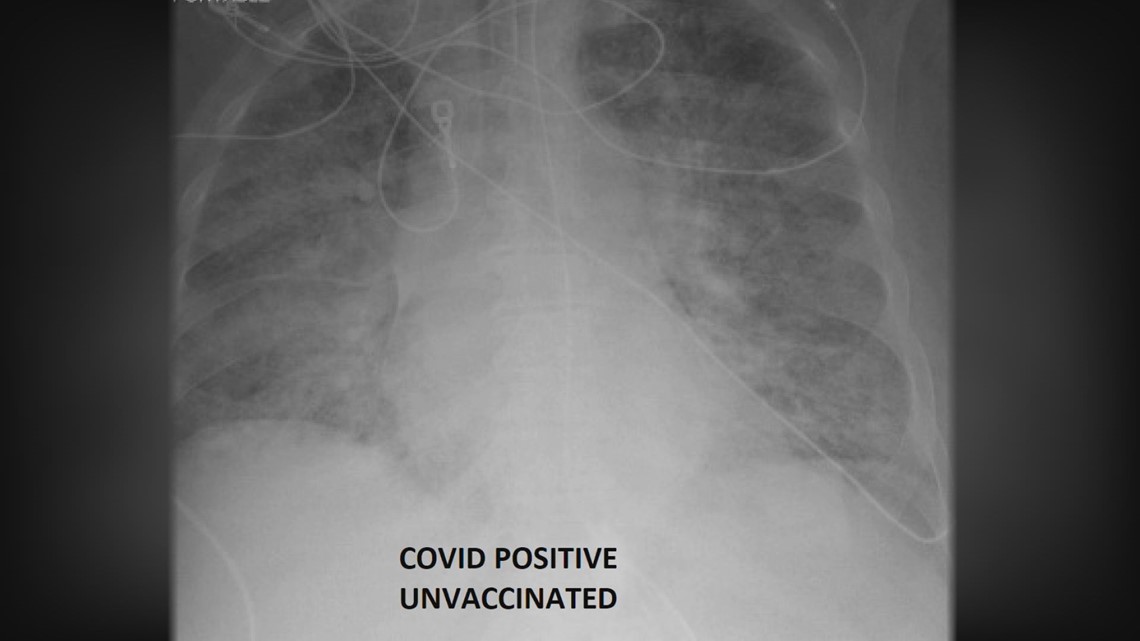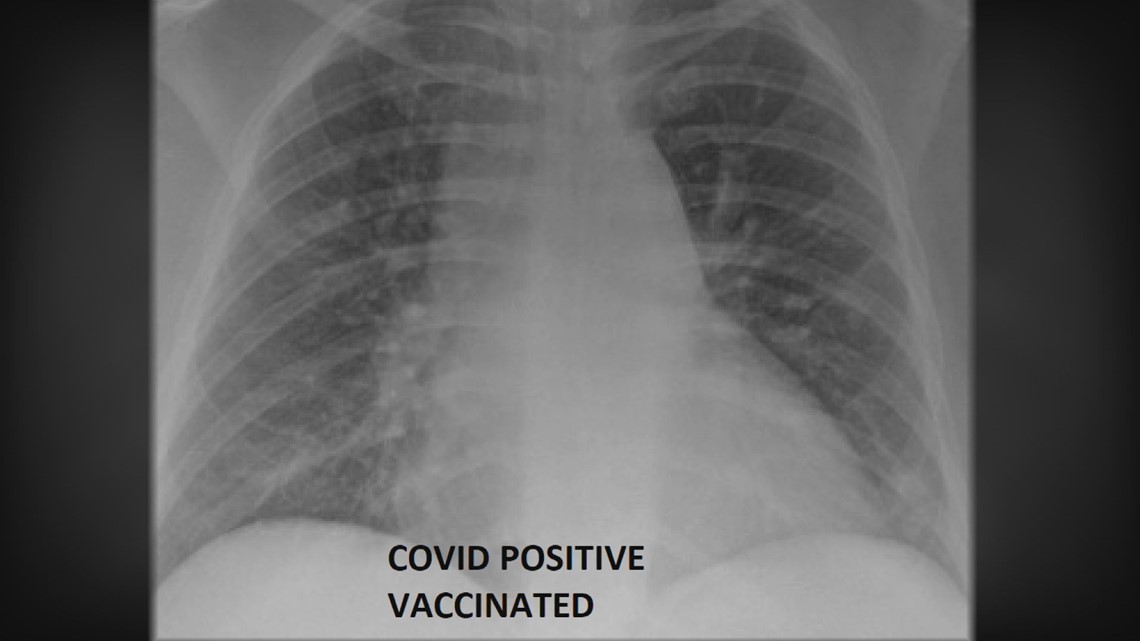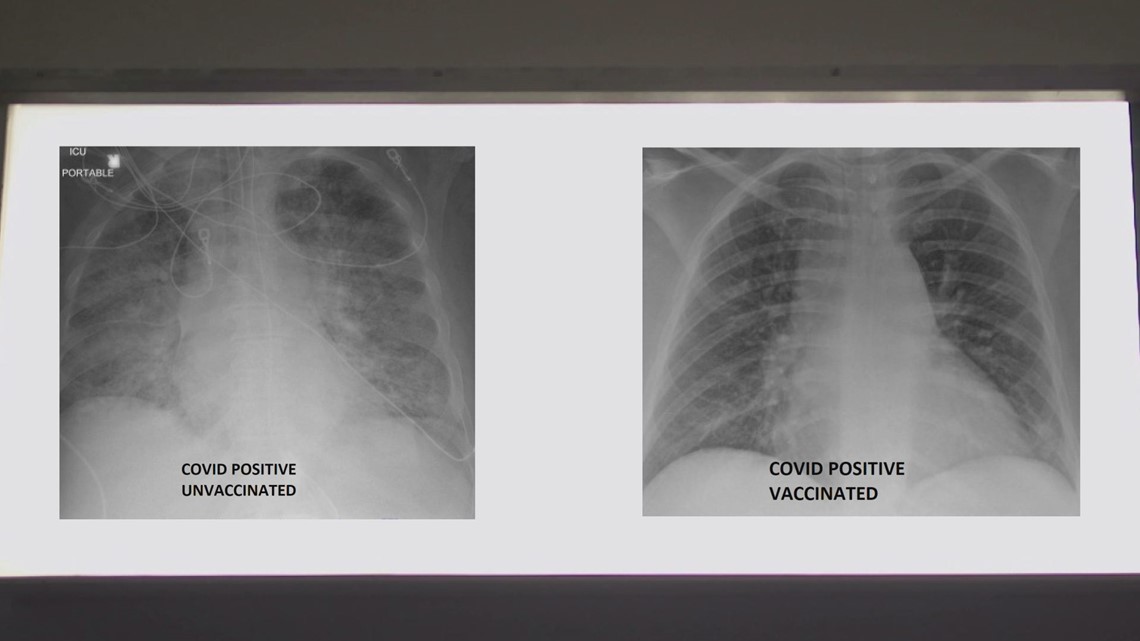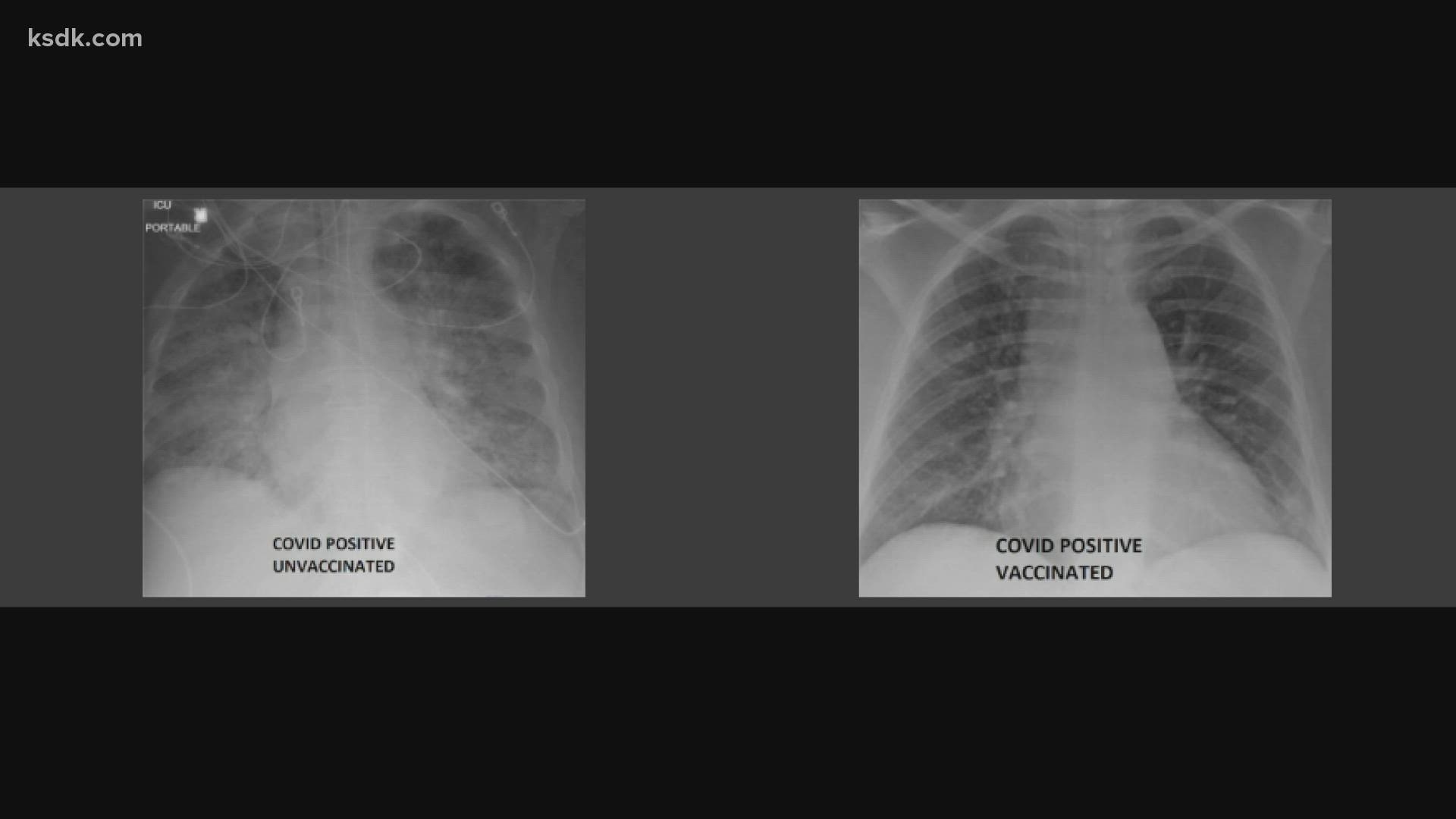ST. LOUIS — Dr. Ghassan Kamel is the director of the Medical ICU at SSM Health SLU Hospital in St. Louis. Most of his patients aren't vaccinated.
Right now, he said most of his patients are younger than the ones he saw in December. But this time around, the vaccine is in the mix.
"We are seeing very sick patients," Dr. Kamel said.
To see how the vaccine could help, SSM Health provided two x-ray photos of lungs. Both are COVID-19 positive. One is vaccinated, the other is not.
Dr. Kamel examined the x-ray and explained the white in the lungs you see is the virus. That can be bacteria, mucus, or secretions.


The doctor couldn’t identify any specific conditions involved in these cases to protect patient information, but spoke in general on the differences that can be seen on the x-rays.
He said by looking at an unvaccinated x-ray, a patient most likely needs assistance.
"They definitely at least would require oxygen and sometimes they would require more than just oxygen. They might require the ventilator or get intubated on mechanical ventilation, sedated, and basically on life support," Dr. Kamel said.


If you look at the vaccinated image, Dr. Kamel said when lungs are full of air in an x-ray, it looks black. As you can tell, there's more black in this one, than the other.
This vaccinated x-ray is a breakthrough case, a rare occurrence. Less than 1% of vaccinated people get COVID.
For vaccinated folks getting infected, they may not even need to go to a hospital.
If they do, Dr. Kamel said most aren't requiring ICU admission or life support. The exceptions include people with pre-existing conditions or who are immunocompromised.


And on Friday, new data from the CDC shows vaccinated folks who get the virus can spread it as easily as unvaccinated people.
"The vaccine protects you from getting really really sick," Washington University Infectious Disease Specialist Dr. Rachel Presti said, "but it doesn't protect you from passing it on to, you know, your neighbors or loved ones."
That's why the CDC came out again asking people to mask up.
"Wearing a mask is important to try to get some control over this so it's not crazy and overwhelming us," Dr. Presti said.
Until we get to higher vaccine levels, Dr. Kamel hopes you can get the picture by looking at these x-ray photos and make a decision to protect yourself.
"If you don't like the mask, you definitely won't like the ventilator," Dr. Kamel said.

